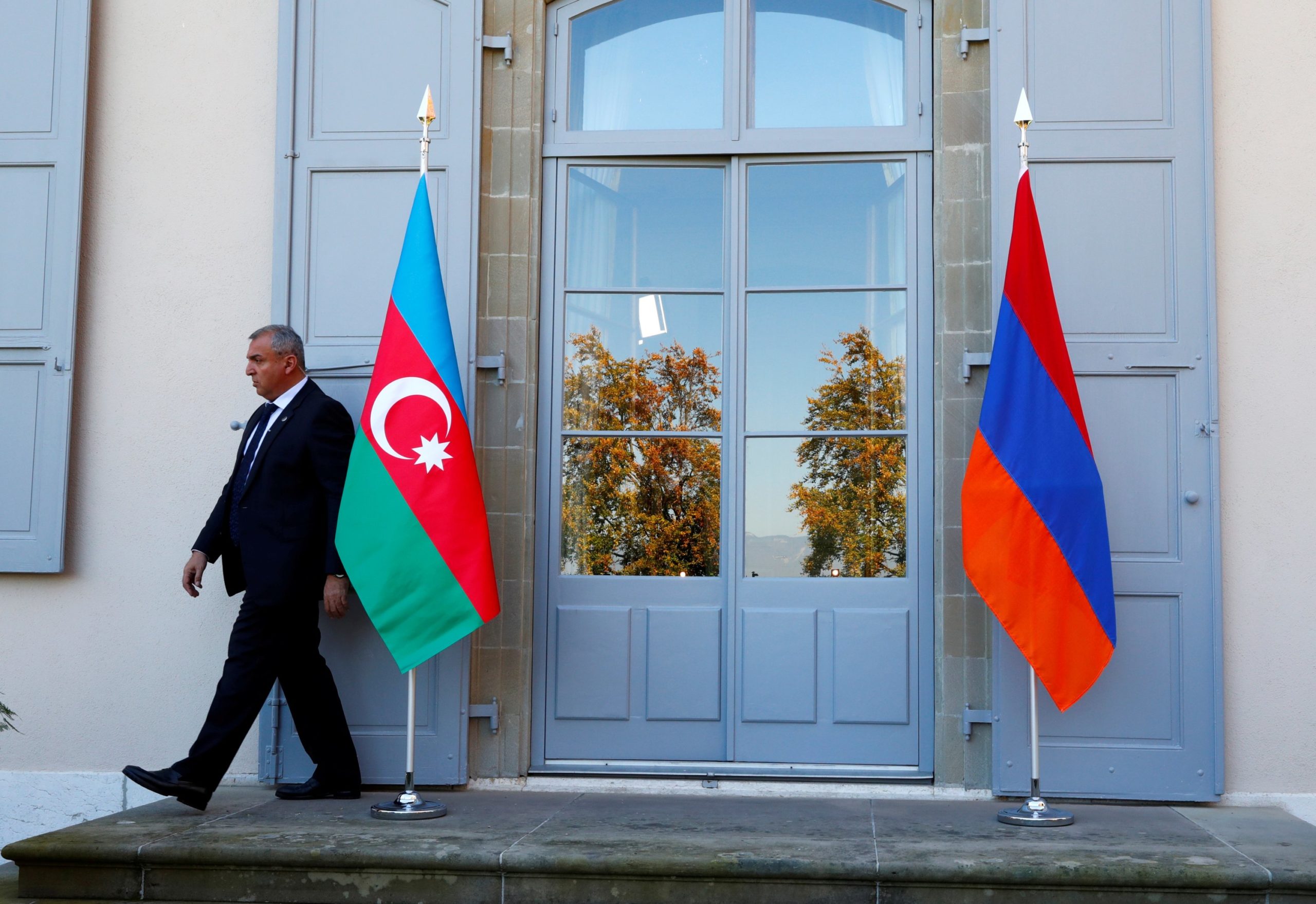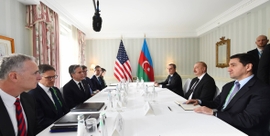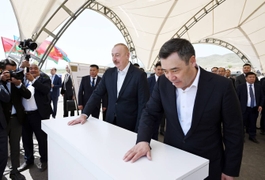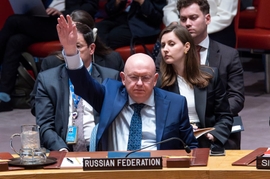The authorities of Azerbaijan and Armenia have issued a joint statement, announcing mutual agreements on key confidence-building measures to facilitate the signing of a peace treaty.
“The Republic of Armenia and the Republic of Azerbaijan share the view that there is a historical chance to achieve a long-awaited peace in the region. Two countries reconfirm their intention to normalize relations and to reach the peace treaty on the basis of respect for the principles of sovereignty and territorial integrity,” reads the statement jointly released on Thursday by the Presidential Administration of Azerbaijan and the Office of the Prime Minister of Armenia.
Driven by the values of humanism and as a gesture of goodwill, Baku and Yerevan reciprocate by releasing prisoners. Thirty-two Armenian military servicemen detained in Azerbaijan will be returned home, while two Azerbaijani military servicemen will be released from detention in Armenia.
The next step in thawing the decades-long frost in mutual relations involves reciprocal support for bids in the Conference of Parties (COP), the decision-making body responsible for monitoring and reviewing the implementation of the United Nations Framework Convention on Climate Change.
Armenian authorities withdrew the country’s candidacy for hosting the upcoming COP29 Summit to support Azerbaijan’s bid for the same status. In response, the government of Azerbaijan announced its support for Armenia’s candidature for Eastern European Group COP Bureau membership.
“The Republic of Armenia and the Republic of Azerbaijan will continue their discussions regarding the implementation of more confidence-building measures, effective in the near future and call on the international community to support their efforts that will contribute to building mutual trust between the two countries and will positively impact the entire South Caucasus regions,” concludes the joint statement.
Before issuing the joint statement, Azerbaijan and Armenia resumed collaboration on November 30 with the state border delimitation commissions. Delimiting borders is a key issue to be included in the peace treaty.
European Council President Charles Michel, who previously mediated political negotiations between the two countries, described the statement as a “major breakthrough” in Azerbaijan-Armenia relations.
“[I] welcome in particular release of detainees and unprecedented opening in political dialogue. Establishing and deepening bilateral dialogue between sides has been a key objective of the EU-led Brussels process: today’s progress is a key step. I now encourage the leaders to finalise the Armenia-Azerbaijan peace deal ASAP [as soon as possible],” Michel wrote on X (formerly Twitter).
President Michel hosted President Ilham Aliyev and Prime Minister Nikol Pashinyan in six meetings, the last occurring on July 15, 2023, in various European locations, including Brussels and Moldova’s capital Chișinău. Sovereignty and territorial integrity, border delimitation, connectivity, and other issues comprised the agenda of the negotiations.
In addition to President Michel and the EU, the US Department of State Spokesperson Matthew Miller also welcomed the joint statement of Azerbaijan and Armenia.
“The U.S. welcomes the announcement by Armenia and Azerbaijan to release 34 detainees, an important confidence-building measure as the sides work to finalize a peace agreement and normalize relations. We remain committed to supporting Armenia-Azerbaijan peace negotiations,” Miller commented on the joint statement of Azerbaijan and Armenia.
However, some political analysts suggest that the signs of Azerbaijan-Armenia rapprochement indicate the inspiration of the two countries to revitalize the relationship without foreign mediation.
Laurence Broers, author of the “Armenia and Azerbaijan: Anatomy of Rivalry” book, notes that the joint statement by Baku and Yerevan mentions no mediator.
“Joint statement by Armenia + Azerbaijan announces confidence-building measures, including reciprocal release of prisoners, affirms intentions to normalize relations. That this results from bilateral talks with no 3rd party mediation is also a signal,” Broers wrote.
Armenia and Azerbaijan had been in an armed conflict for nearly 30 years over the Karabakh (Garabagh) region, an internationally recognized territory of Azerbaijan.
Armenia launched full-blown military aggression against Azerbaijan following the Soviet Union’s dissolution in 1991. The bloody war lasted until a ceasefire in 1994 and saw Armenia occupying 20 percent of Azerbaijan’s internationally recognized territories. Over 30,000 Azerbaijanis were killed, and one million were expelled from those lands in a brutal ethnic cleansing campaign conducted by Armenia.
On September 27, 2020, the decades-old conflict took a violent turn after Armenia’s forces deployed in the occupied Azerbaijani lands shelled military positions and civilian settlements of Azerbaijan. During the counter-attack operations that lasted 44 days, Azerbaijani forces liberated about 300 settlements, including the cities of Jabrayil, Fuzuli, Zangilan, Gubadli, and Shusha, from nearly 30 years of illegal Armenian occupation. The war ended in a tripartite statement signed on November 10, 2020, by Armenia, Azerbaijan, and Russia. Under the statement, Armenia also returned the occupied Aghdam, Kalbajar, and Lachin districts to Azerbaijan.
On September 19, 2023, Azerbaijan launched local anti-terrorist measures to neutralize illegal Armenian armed formations and their military infrastructure deployed in certain parts of Azerbaijan’s Karabakh region temporarily monitored by the Russian peacekeeping contingent after the 2020 war. Following 23 hours of intense operations, Azerbaijani forces disabled artillery, military infrastructure, and strongholds of Armenian armed formations. Over 90 strategic positions were brought under control, with no harm to civilians or infrastructure. The illegal Armenian separatist regime, seeking Russian mediation, agreed to cease activities on September 20 and self-dissolved on September 28. President Aliyev hoisted the state flag of Azerbaijan in Khankendi, the Karabakh region on October 15 announcing the restoration of sovereignty across the entire internationally recognized landmass of Azerbaijan.







 President Ilham Aliyev shed light on the evolving contours of the peace process with Armenia during an international conference in Baku this week. ...
President Ilham Aliyev shed light on the evolving contours of the peace process with Armenia during an international conference in Baku this week. ...
 Turkmen President Serdar Berdimuhamedow and British Secretary of State for Foreign Affairs, Commonwealth Affairs, and Development David Cameron dis...
Turkmen President Serdar Berdimuhamedow and British Secretary of State for Foreign Affairs, Commonwealth Affairs, and Development David Cameron dis...
 Russia and Ukraine have engaged in direct negotiations facilitated by Qatar to address the exchange of children affected by the ongoing conflict.
Russia and Ukraine have engaged in direct negotiations facilitated by Qatar to address the exchange of children affected by the ongoing conflict.



